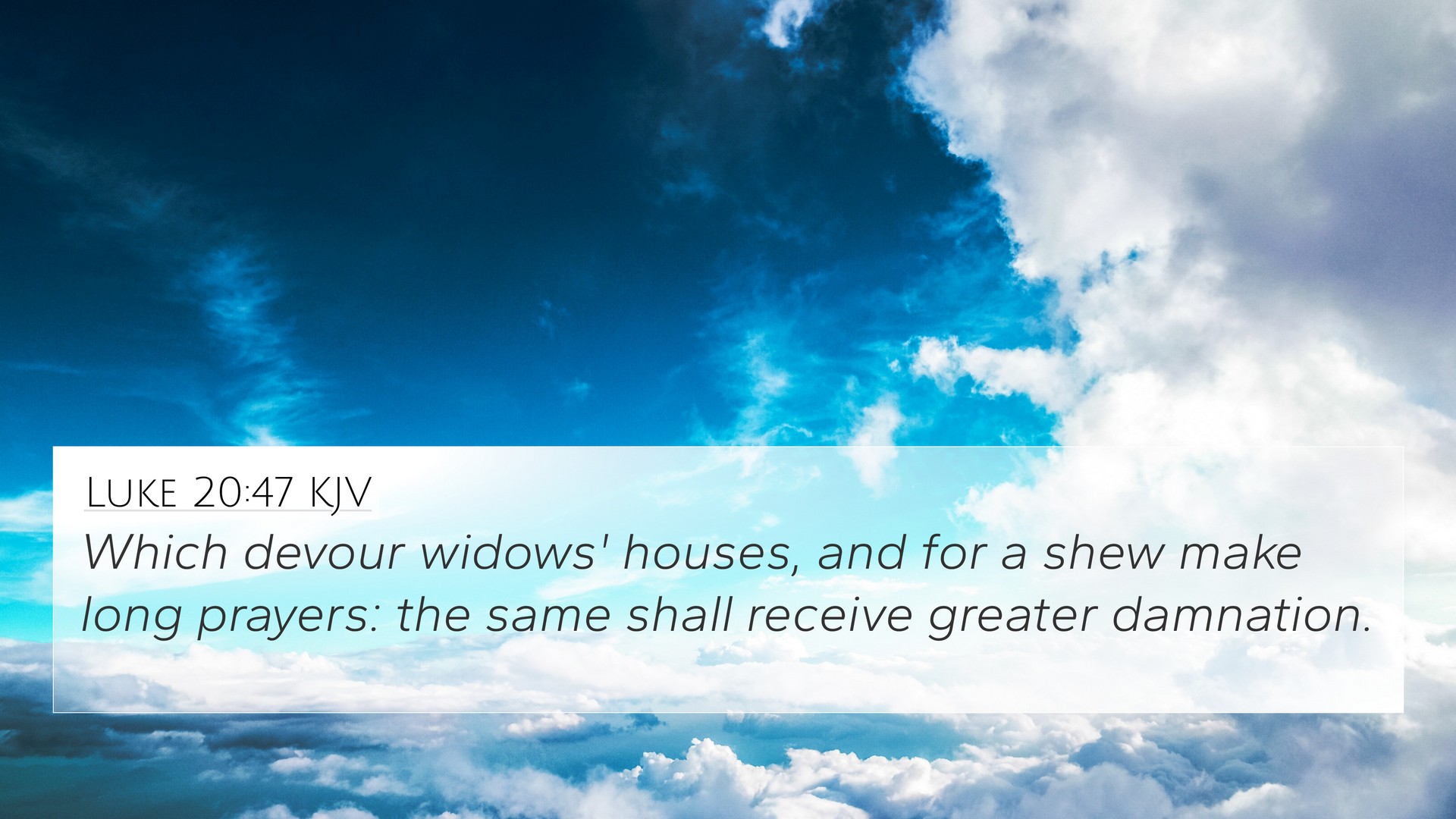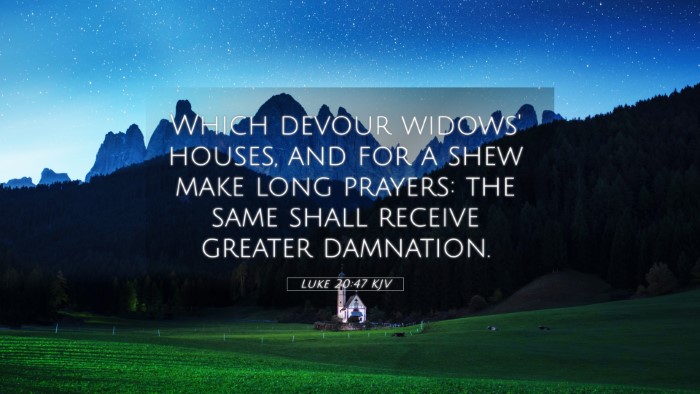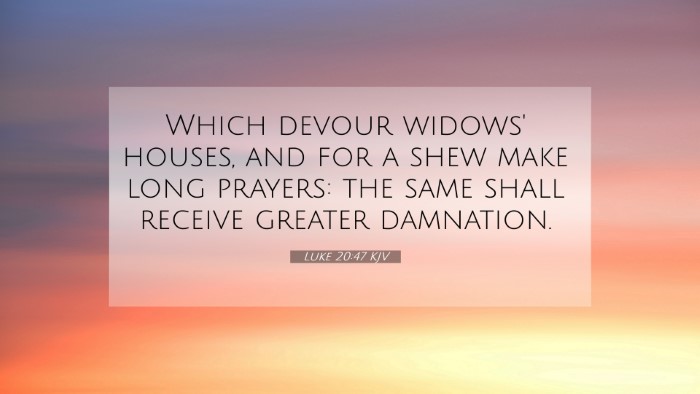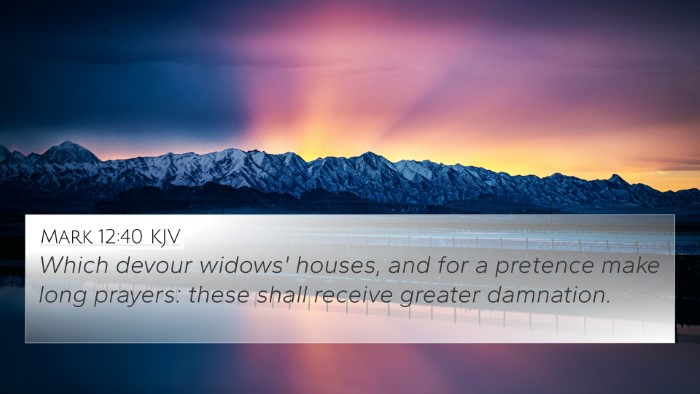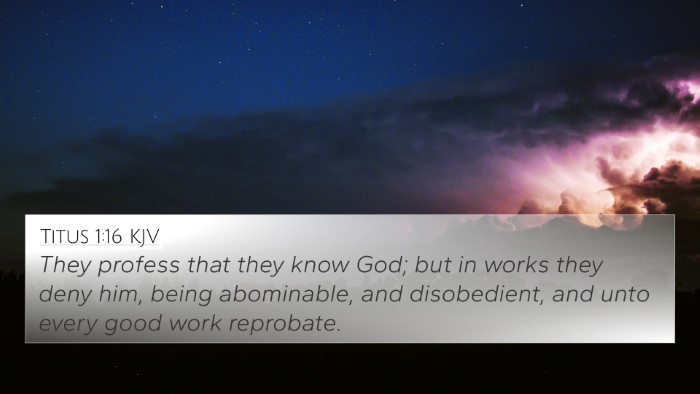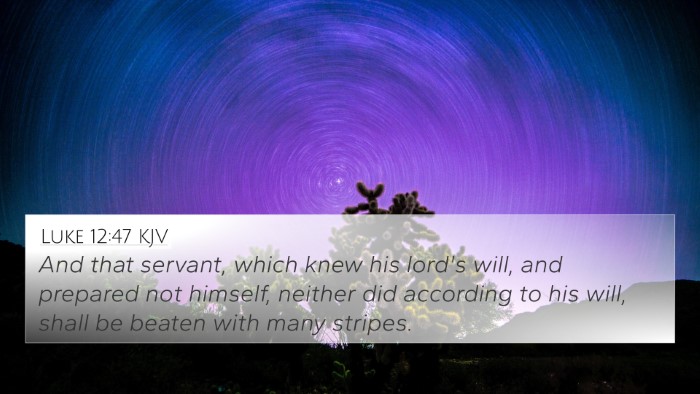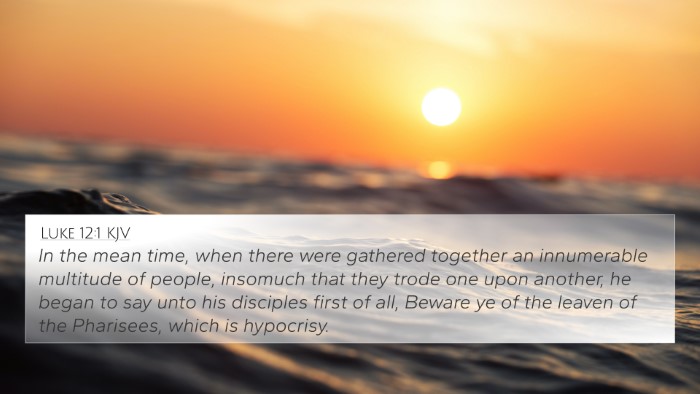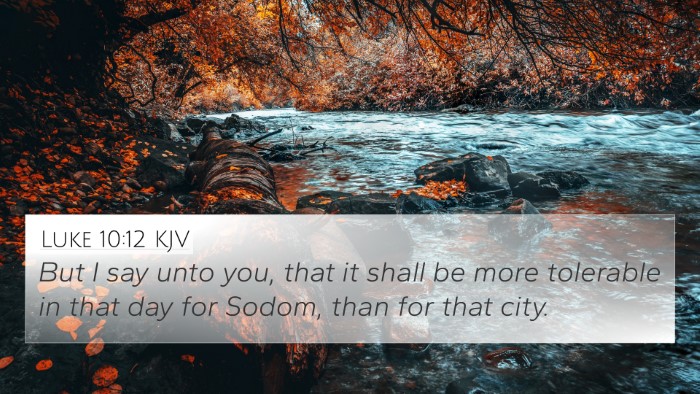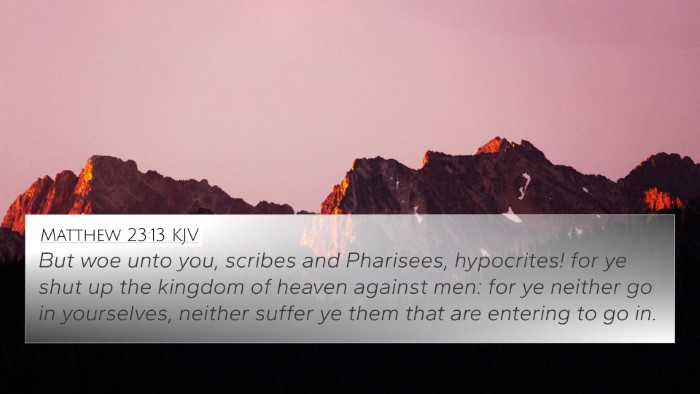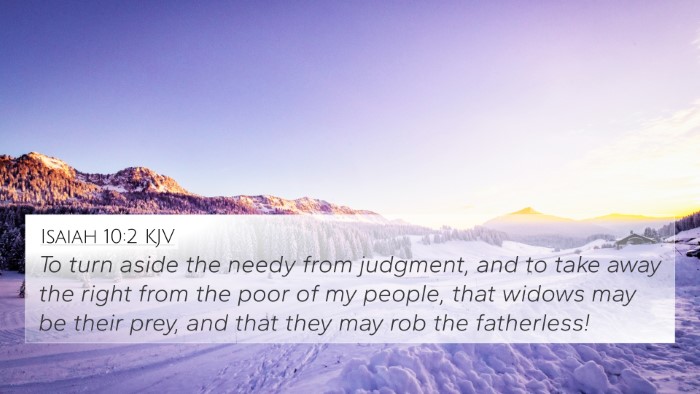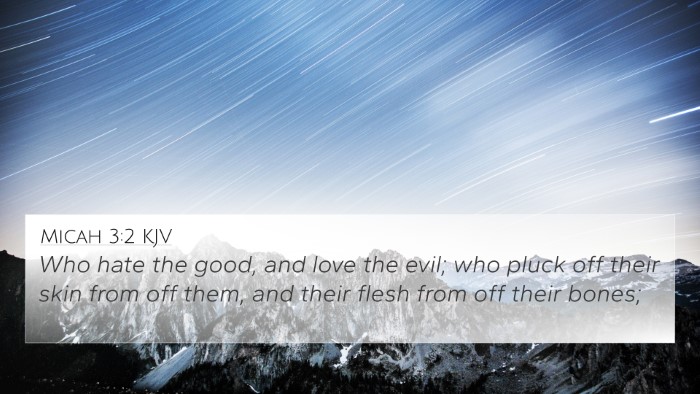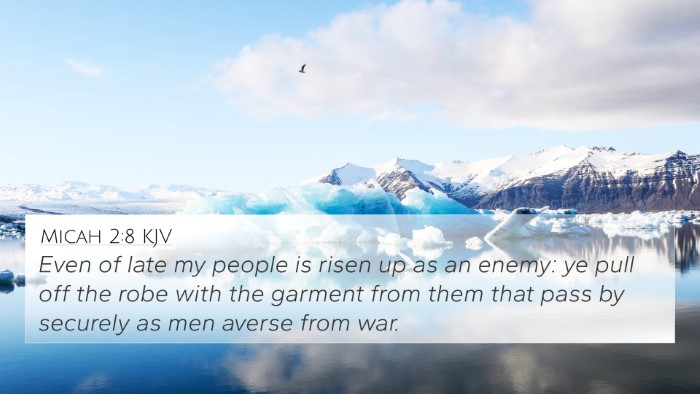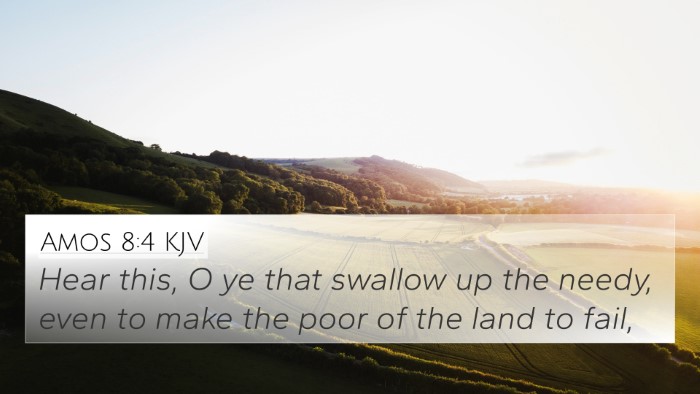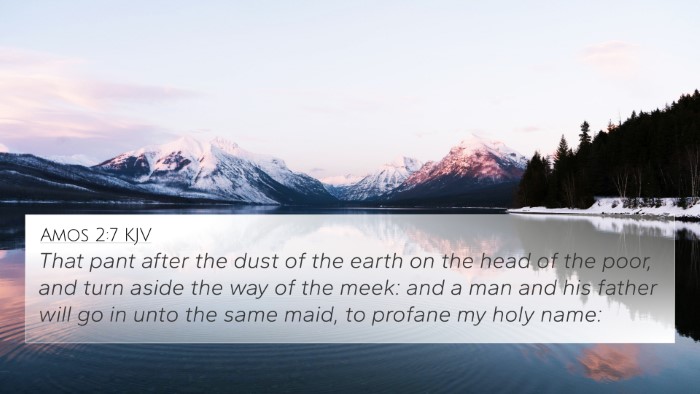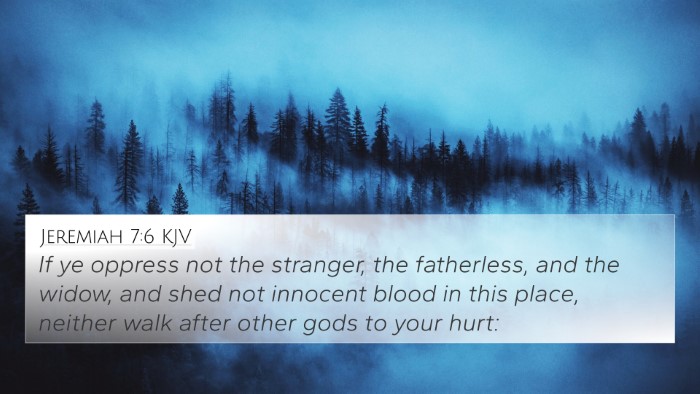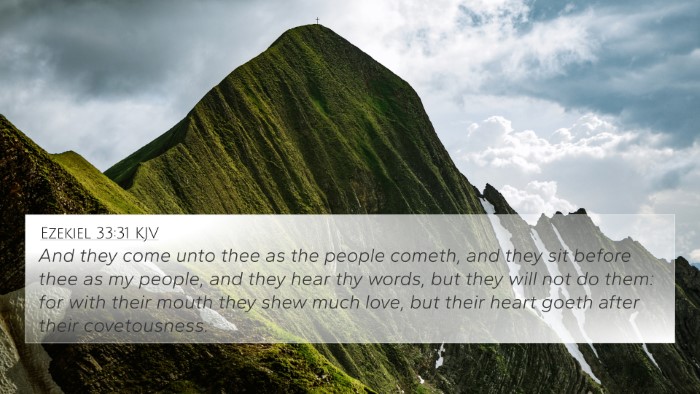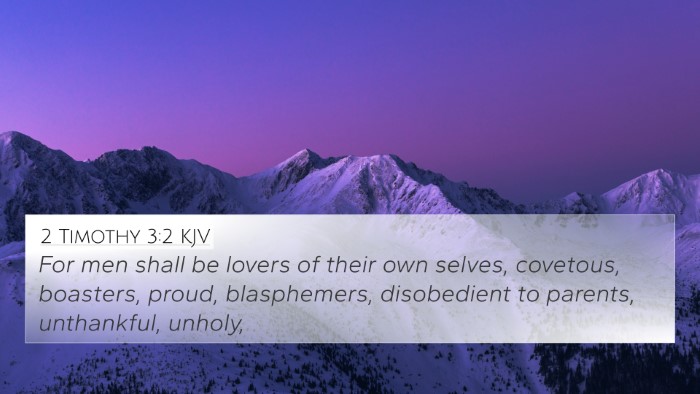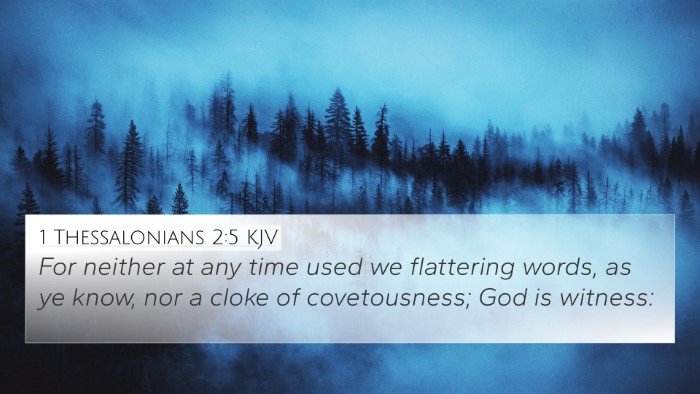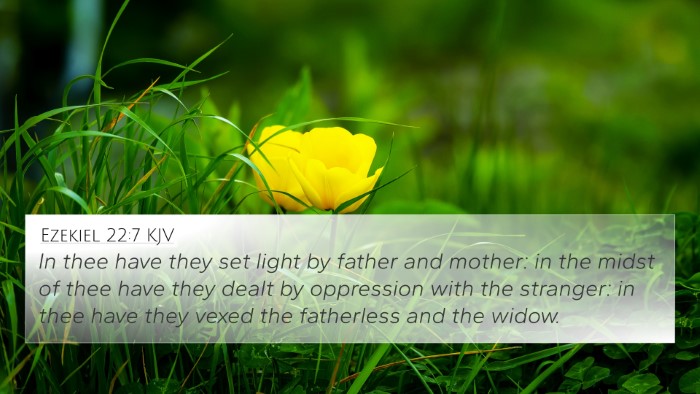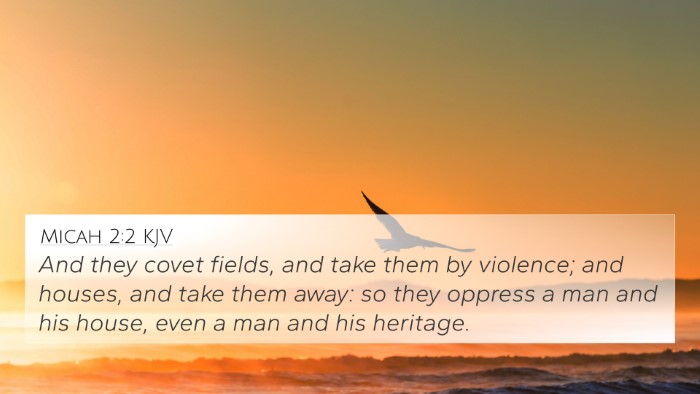Understanding Luke 20:47
Verse Reference: Luke 20:47 - "Which devour widows' houses, and for a shew make long prayers: the same shall receive greater damnation."
The verse highlights the condemnation of certain religious leaders who exploit the vulnerable, particularly widows, under the guise of piety. It emphasizes the seriousness of their hypocrisy and the consequences they will face.
Summary of Insights from Commentaries
Matthew Henry's Commentary
Matthew Henry points out that the Pharisees and scribes were known for their outward displays of piety which masked their true intentions. They took advantage of the helpless, portraying themselves as models of spirituality while, in reality, they were deceitful. This hypocritical behavior brought them under judgment.
Albert Barnes' Notes
Albert Barnes interprets this verse as a warning against those who use religion for personal gain. He notes that the practice of long prayers, while seemingly spiritual, is tainted by the immoral actions of taking advantage of widows—those who should be protected rather than exploited. He stresses that their punishment will be severe due to their actions against the helpless.
Adam Clarke's Commentary
Adam Clarke elaborates on the notion of judgment in this verse, suggesting that those in positions of spiritual authority are held to a higher standard. The mention of "greater damnation" serves as a call to recognize the severe consequences of leading others to sin, emphasizing accountability in leadership, especially towards the vulnerable.
Cross-References Related to Luke 20:47
- Mark 12:40 - "Which devour widows' houses, and for a pretence make long prayers: these shall receive greater damnation." (Similar message regarding hypocrisy)
- Matthew 23:14 - "Woe unto you, scribes and Pharisees, hypocrites! for ye devour widows' houses, and for a pretence make long prayer: therefore ye shall receive the greater damnation." (Thematic parallel addressing the same issue)
- James 1:27 - "Pure religion and undefiled before God and the Father is this, To visit the fatherless and widows in their affliction..." (Contrast to hypocrisy)
- Isaiah 10:1-2 - Addresses the injustices toward the helpless and the oppression of the widow.
- Luke 18:1-8 - The parable of the unjust judge and the persistent widow illustrates the necessity of seeking justice.
- 1 Timothy 5:3 - Instruction on honoring widows shows the importance of care for this group in the community.
- Matthew 6:5 - Jesus teaches about the nature of true prayer vs. hypocritical prayer.
- Proverbs 22:22-23 - "Rob not the poor, because he is poor: neither oppress the afflicted in the gate: For the Lord will plead their cause, and spoil the soul of those that spoiled them." (Divine justice for the oppressed)
- Luke 16:15 - "And he said unto them, Ye are they which justify yourselves before men; but God knoweth your hearts: for that which is highly esteemed among men is abomination in the sight of God." (Condemnation of false righteousness)
- 1 Corinthians 4:5 - Addresses God's ultimate judgment and the uncovering of hypocrisy.
Connections Between Luke 20:47 and Broader Biblical Themes
This verse connects to broader themes within the Bible, particularly the importance of protecting the vulnerable and the dangers of hypocrisy in religious practices. By linking this verse with others, we find that Scripture consistently advocates for justice, especially for orphans and widows.
Comparative Bible Verse Analysis
When examining Luke 20:47 alongside verses from both the Old and New Testament, we see a clear message about accountability for leaders and the moral obligations of followers of Christ. The emphasis on integrity reinforces the idea that one's outward devotional practices should reflect genuine faith and ethical behavior.
Tools for Bible Cross-Referencing
For those interested in exploring deeper connections between Bible verses, various tools and techniques can be employed:
- Utilizing a Bible concordance to trace themes and repetitive teachings across books.
- Implementing a Bible cross-reference guide that facilitates thematic studies.
- Engaging in cross-reference Bible study to find links between verses.
- Using a Bible reference resource to trace scriptural parallels for sermon preparation and personal study.
Conclusion
In Luke 20:47, Jesus warns against the grave consequences of hypocrisy in spiritual leadership. By cross-referencing this verse with others, we gain a richer understanding of biblical themes surrounding justice, integrity, and the treatment of the vulnerable. Such insights can guide behavior, promote spiritual growth, and encourage communities of faith to embody the true essence of Christ's teachings.
This symbiotic relationship amongst verses not only enriches individual comprehension but also serves as a resource for deeper theological studies and practical applications.
